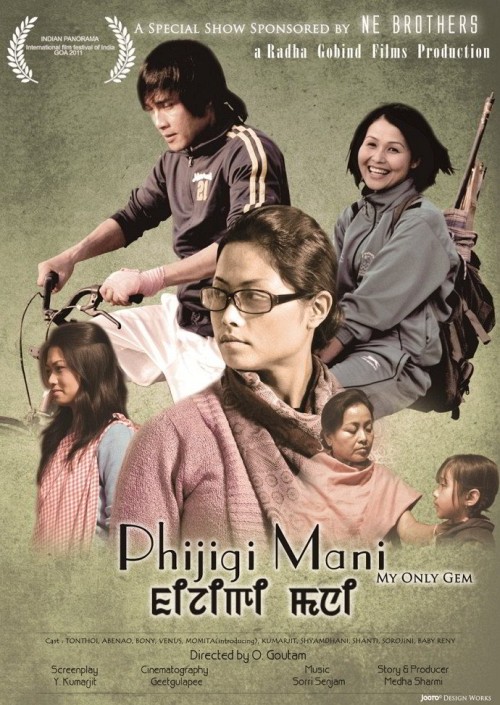Phijeegi Mani : gender-trouble
Review by Kumam Davidson *

Phijigee Mani
People celebrated this year's National Award winning events of the much talked about Phijeegi Mani. After moments of excitement and endowed recognition to a digital film industry, I started looking at Tonthoi's supporting role once again. Unfortunately, her award co-incidentally was also a supporting one in a different way too. Suspicions about her role and female role in the film generally crept up. I realised gender is in trouble in the film.
The title is about their son, about her son. The title is male-centric. It has no place for the daughter, she is somewhere in the periphery, marginalised. Well, it is the classic mother-son myth where daughters are supposed to be only support system.
Already the title gives her only a supportive role. The problem is not that she has to play a supporting role in a work of fiction, but the nature of that role. It is clear that the film definitely functions on the patriarchal gender-divide. She is the daughter of the family. She cannot be anything but a scapegoat to reach the poetic justice crudely speaking. She does that eventually.
First of all, she is projected as the one who is always helping with his brother's everyday chores. One way of looking at her role would be that what she does is as normal as in most families in the society. It is siblings' love and care. True, but yeah! it is also a problematic gender role-playing.
It's not always the daughter chooses to do what she is doing in the film; it's more of a culture, a prescribed role. Society largely accepts this, and there is also a continuous perpetuation of such culture through different ways and film being one of the media. That's why I say there is gender-trouble in the film.
Why cannot we do away with such pre-defined roles? What is gender? What is masculinity and femininity? People need to make an attempt to explain such questions. The basic idea is that gender-divide is an artificial construct which is discriminatory in nature. And society accepts such absurd constructs.
But new cultural studies definitely question such culture. At the climax of the movie, one comes across a dialogue that in crude translation says pray that you will be blessed to serve your husband forever.
Seriously!! commit suicide or kill somebody before accepting or believing this. I am not kidding....chuckles!
As I said, it seems the film's poetic justice; happy ending can only be brought by Tonthoi's scapegoat-role performing her supportive task well. I got more to say about the movie and it's problems of gender classification. That might come later on.
Nevertheless, it's a film worth watching.
